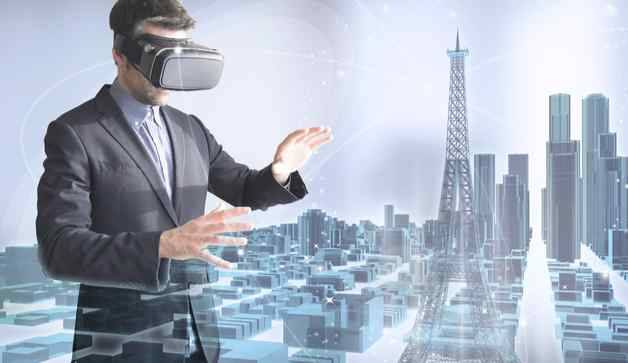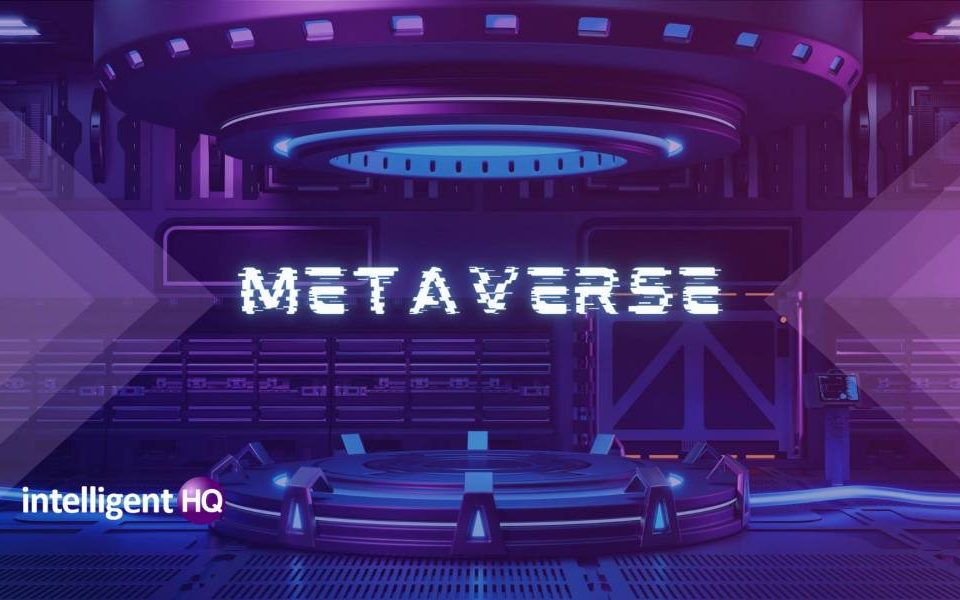From the Metaverse To NFTs Experiences: Lynkey And Smart Tourism Solutions For The New World

Conflict Negotiation – Know These 6 Tips to Deal Effectively
February 2, 2022
Luke Stokes Interview , Foundation for Interwallet Operability – Designing a Decentralized World: DAO vs DAC
February 4, 2022From the Metaverse To NFTs Experiences: Lynkey And Smart Tourism Solutions For The New World
The Covid-19 pandemic has taught us that a digital future is more than necessary to keep the world and its people moving, especially the hard-hit tourism industry. NFTs can provide unique experiences and business opportunities in a VR and AR Metaverse. One project, LynKey, is combining all these innovative solutions to shape the future of Smart Tourism.

From the Metaverse To NFTs Experiences: Lynkey And Smart Tourism Solutions For The New World
The tourism industry is going through a disruptive moment. The Covid-19 pandemic has shown that the industry needs to embrace digital solutions. It also highlighted a growing trend: that users are willing to enjoy digital-based experiences.
Metaverse projects, such as by LynKey, offer an innovative millennial 4IR solution for its global audience for a seamless and exclusive travelling experience, providing a plethora of virtual choices over its platform.
Innovative solutions coming from VR, AR, and the Metaverse will create new business models and ways to engage better audiences with their favourite tourist destinations and create new impactful solutions with artists, DJs and NFTs that bridge entertainment, tourism experiences, and create a multitude of possibilities.
And creating near-to-real and refreshing travel experiences at the comforts of their couch using Metaverse, AR, and VR is an idea that can shake the industry.
“The travel industry is witnessing a global cry-out for an overhaul of the infrastructure that had been crippled due to its antiquated features after the pandemic hit the world. It looks for a leader that can navigate through the conventional market inequalities into a realm that offers a ‘one-stop-solution’ for some of the majestic destinations on our planet. Believe it or not, there are absolutely many!” Cindy Tran, CEO and Co-Founder, LynKey, said.
Blockchain powered Tourism Experiences
Brokers, lawyers, banks, and travel agents have long been a part of the massive tourism industry. In the current market scenario, blockchain is shifting and optimising their roles and participation for local and global transactions. New and upcoming platforms can eventually assume functions such as listings, payments, and legal documentation through automated ledgers and smart contracts.
Cutting out the non-necessary intermediaries will result in more transparency for buyers and sellers. Also, they get secure transactions and certifications and save on commissions and fees charged by these intermediaries, making the transactions more streamlined and transparent.
The tokenisation of entire tourism experiences brings transparency and immutable characteristics to various features, including:
· Travel costs: tickets, inter-city travel, visa processing, access to exclusive lounges.
· Resort tours, services, and entertainment: City-guide services, spa treatments, cruises, desert safaris, scuba diving etc.
· Accommodations, hotel and resort stays: A stay of one week in a particular hotel, hotel upgrades.
· Food & beverage: Pay for meals and drinks with the convenience of using intrinsic tokens.
· Reward system: Similar to points-based rewards, the community participating within the ecosystem is rewarded for their loyalty. This could also enable the users to get preferential treatment or discounts to products and services in the ecosystem.

LynKey’s Smart Blockchain Ecosystem
The NFTs way to create memorable and unique travel experiences
NFTs (or Non-Fungible Tokens) has been, by far, the most exciting way of creating a unique collectible that can not be interchanged over a blockchain. This is one of the top innovations that are increasingly gaining traction for increasing business opportunities. You can conveniently convert your unique travel experiences into NFTs.
NFTs could be developed to provide one-of-a-kind experience, linked to various unique elements. For instance:
· a luxury sea-view villa with particular features or furnishings, or
· a penthouse with pink walls and a butler on the top floor, or
· a blue yacht offering a particular luxury experience and of particular value.
In addition, these NFTs will include timestamps for each of the unique experiences, for instance, a particular date of the year. Thus, any unique tourism experience can be converted into an NFT.
This will enable travellers to create time-based unique experiences and digitise it through NFTs to represent a license to that unique dated experience. The original buyer of the NFT can easily sell this unique experience or set of experiences to another willing buyer on a secondary market without the particular hotel or resort getting directly involved.
Rewriting ‘Virtual Tourism’ experiences
Through a tailored built metaverse, Virtual tourism solutions will create complete holistic and digital experiences all over the world. Besides, it will carve out new ways to promote cities, locations and events with DJs and other personalities and players. The article is about, LynKey Smart Tourism.
One of the takeaways of the Covid-19 pandemic was, in fact, a growing demand for new digital experiences and escapism. Consequently, a ‘watershed moment’ for the capabilities of reality is being augmented by technology with AR and/or VR and other ways to promote both venues, properties and explore new revenue streams.
“Metaverse will transform the entire digital and physical experiences of booking holidays and property buying. It will augment the AR and VR reputation as a critical marketing tool into a permanent form of ‘Smarter Tourism’. AR and VR will become a critically valid form of alternative promotions, sales and travel as consumers and industry players get more accustomed to this technology. This is where various platforms are working closely with blockchain developers, creators of the Metaverse, and global tourism and property partners,” added Cindy Tran, CEO and Co-Founder of LynKey.
The Metaverse, AR, and VR are now critical solutions for countries, cities, tourism boards and hotels that have been unable to operate properly over the past year, keeping would-be visitors interested while business begins its long road to recovery. LynKey Smart Tourism
LynKey’s solutions go beyond tourism experiences and towards a complete smart-city governance. It creates smart tourism destinations with- smart amenities, thriving economy, ancillary services, and good public transport- solving issues of mobility.

The Seven Layers of the Metaverse. Image: Jon Radoff
Technology and Innovation intersect with global tourism for a revolution
Since the arrival of the pandemic, the disruptions have put more than 41 million jobs at risk and it is predicted that travel won’t return to normal until at least 2024. Global tourism had suffered a near-fatal blow, impacting not just in terms of the business, but also the livelihood and economic status of millions of people across the globe. According to UNWTO Tourism dashboard, the global tourist arrival rate fell to 76% (January-September 2021). Though national and mass vaccination programs have been pivotal in resuming the momentum, various current factors continue to hinder its revival. Missing being able to travel freely, or vacating with the family is still something people are experiencing worldwide.
A challenge that Lynkey, as a pioneer in smart tourism / metaverse experiences is eager to take on.




